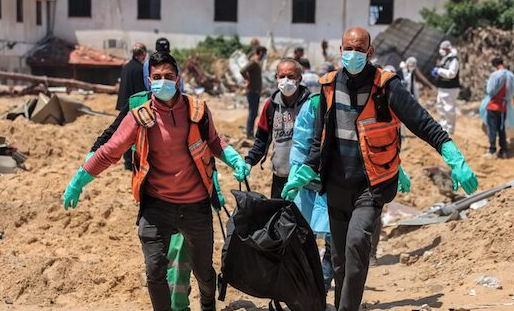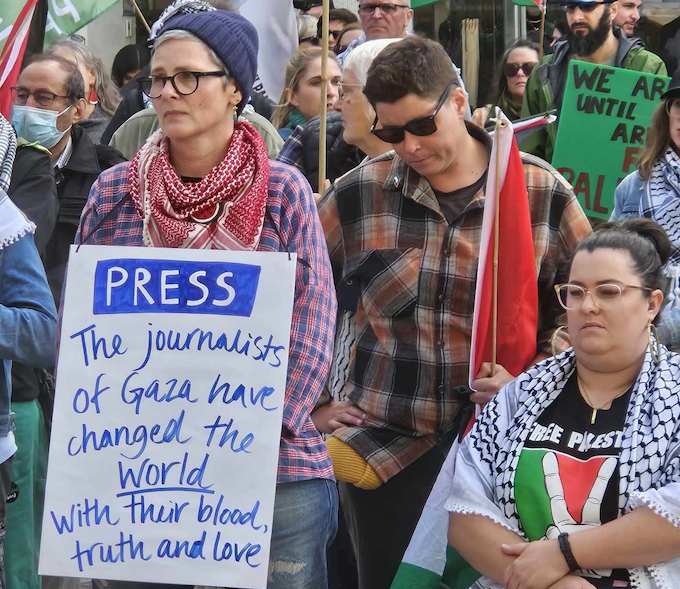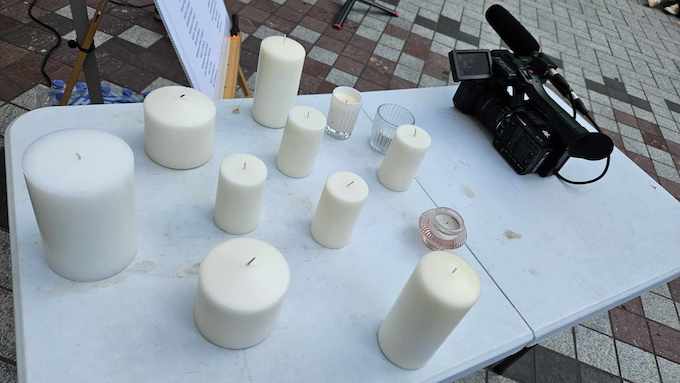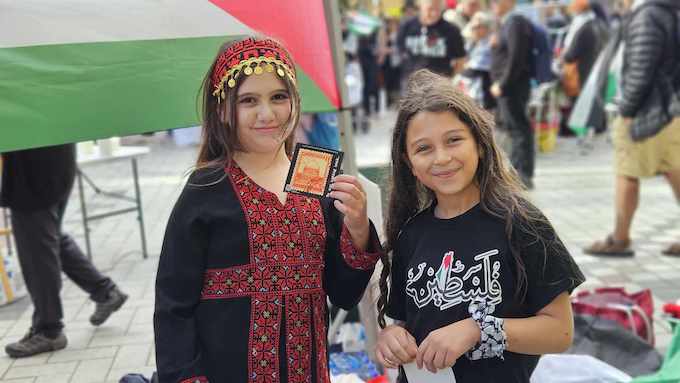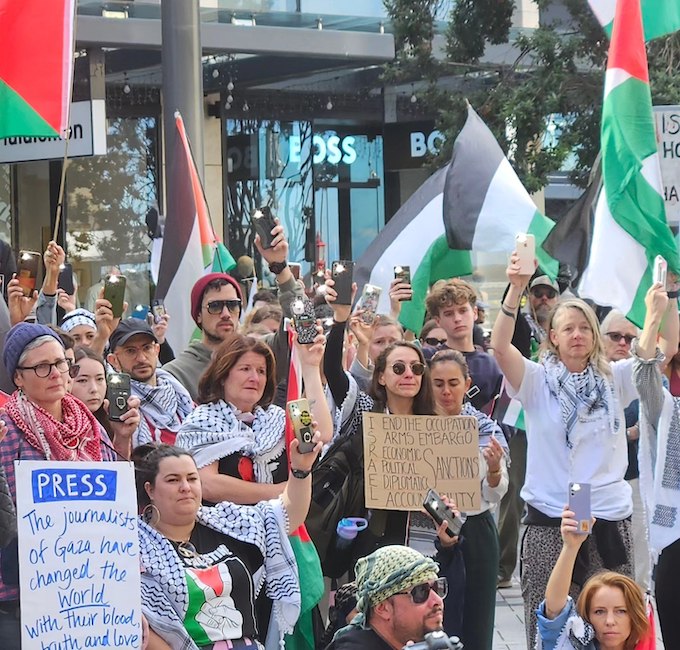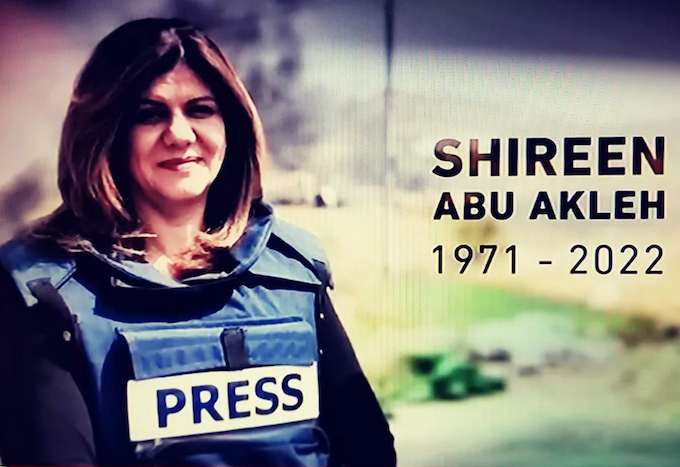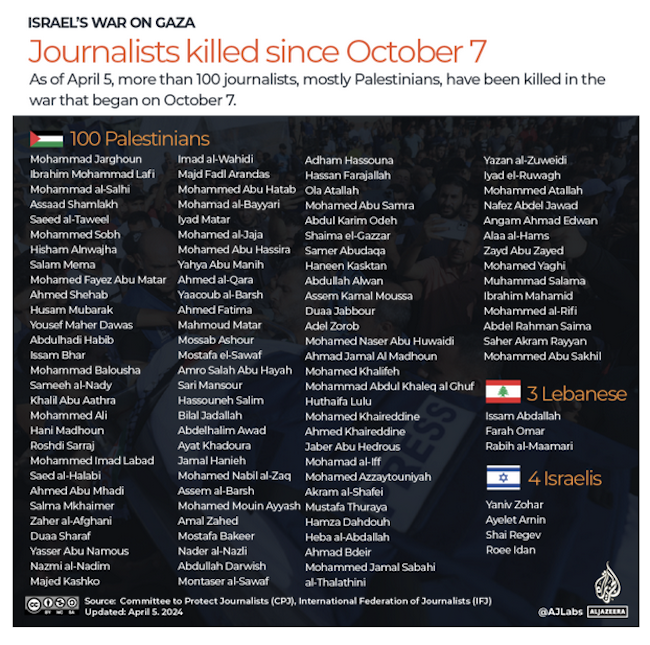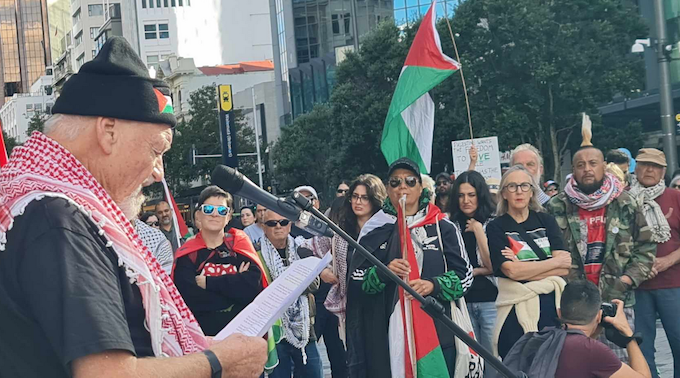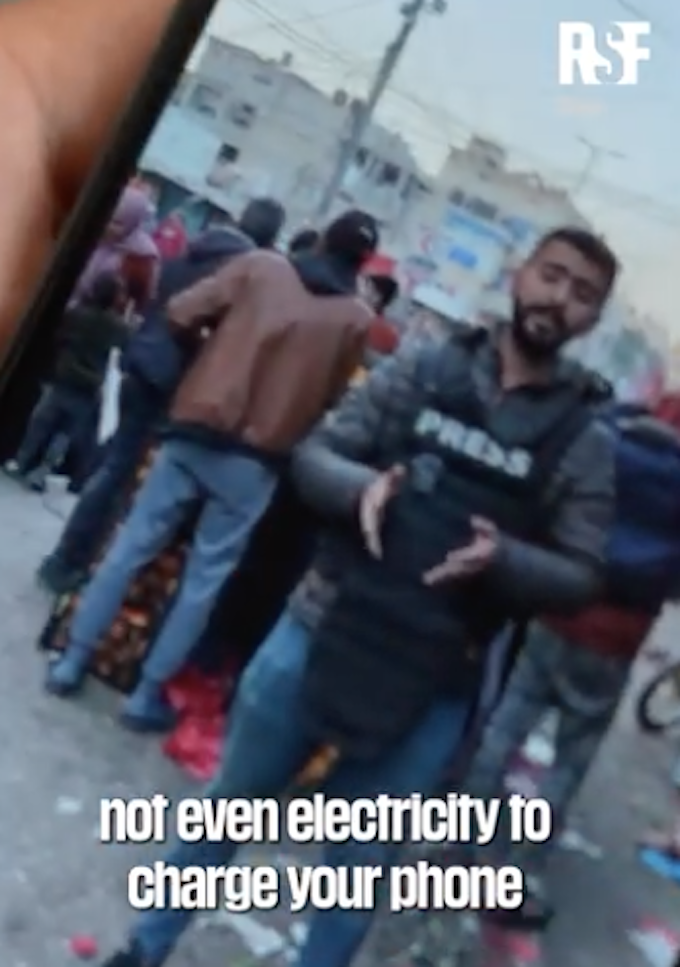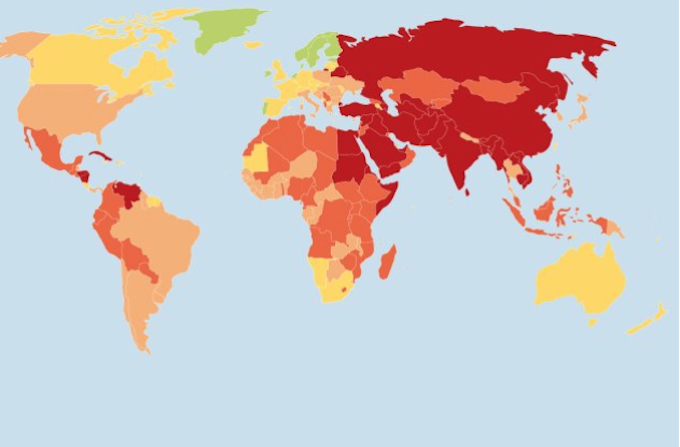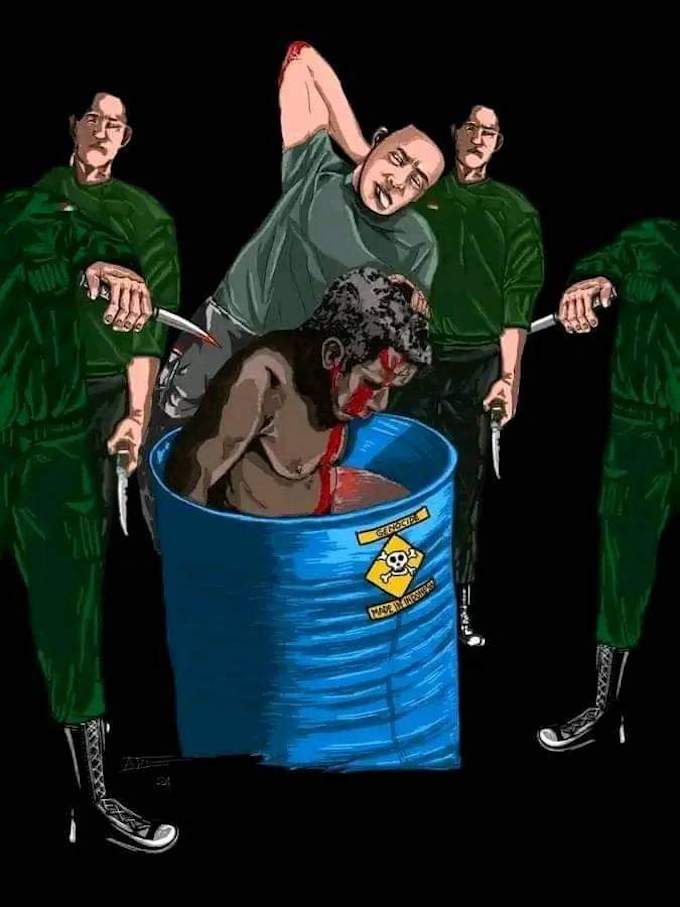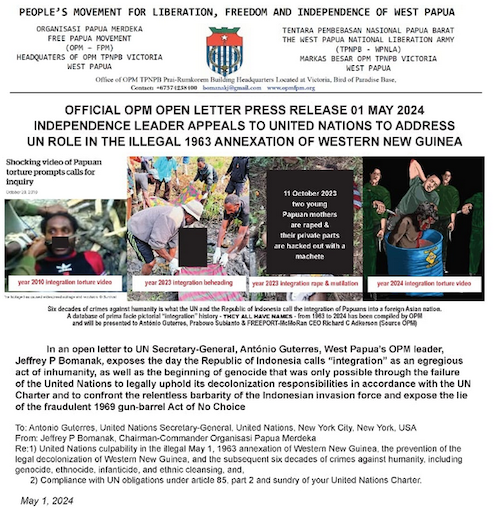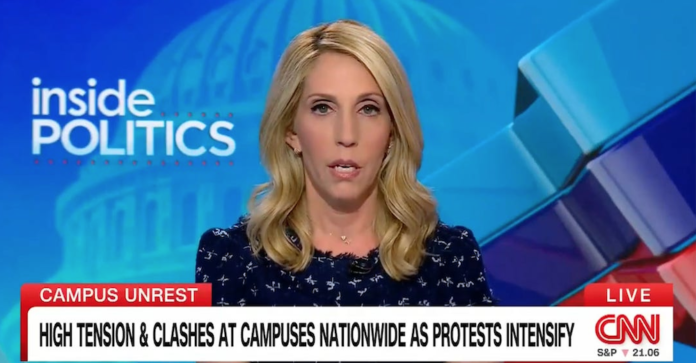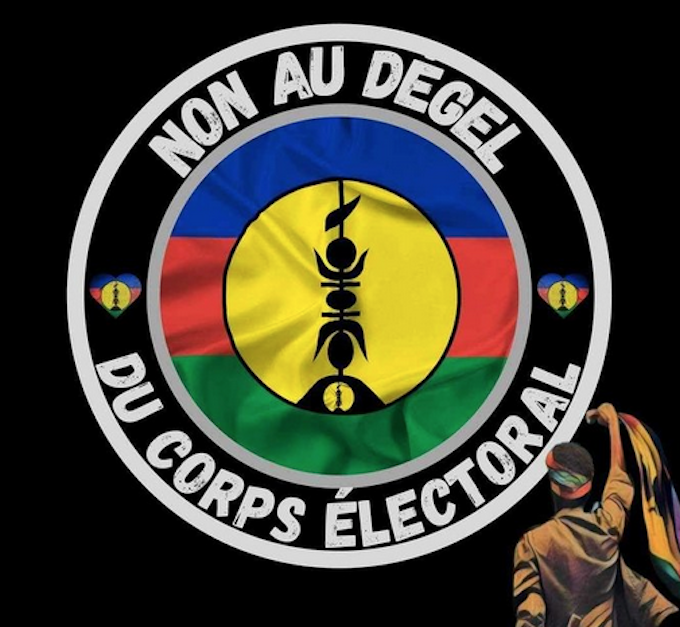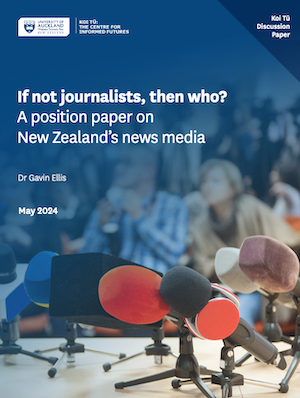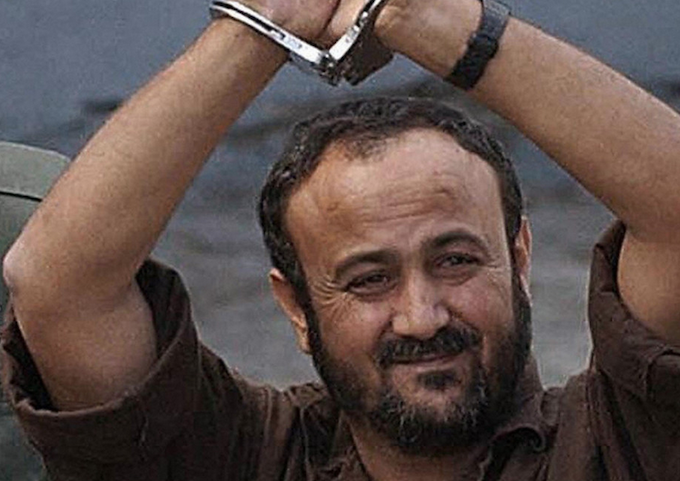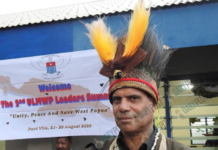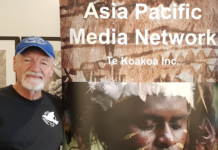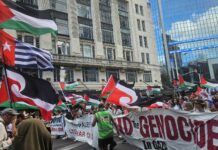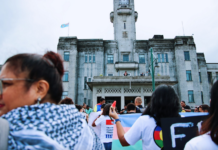Fake Israeli claims keep Western publics focused on “evil” humanitarian aid workers and “evil” anti-war protesters rather than the kind of evil that dares in broad daylight to kill 15,000 children, destroy hospitals, and hide bodies in mass graves.
ANALYSIS: By Jonathan Cook
A gruesome discovery was made in Gaza last month. Some 300 Palestinian bodies — of men, women and children — were unearthed from an unmarked mass grave in the courtyard of the Nasser hospital in Khan Younis.
Even given Israel’s record of committing relentless atrocities in Gaza over the past seven months — killing tens of thousands of Palestinians, most of them women and children — this one stood out.
Some bodies were reported to have been found with their hands and feet bound, and stripped of clothing, strongly suggesting they had been executed during a three-month invasion of the city by Israeli soldiers. Others were said to be decapitated, or their skin and organs removed.
- READ MORE: Heavy Israeli bombing of Rafah as Hamas awaits response to truce proposal
- Other War on Gaza reports
Some 10,000 people had been sheltering at Gaza’s second-largest hospital when it was attacked back in February. At the time there were reports of patients and staff being picked off by sniper fire. The medical facility was left in ruins.
Another 400 people are still reported missing in Khan Younis. More mass graves have already been uncovered.
Referring to some of the bodies, Yamen Abu Suleiman, a civil defence leader in Khan Younis, told CNN: “We do not know if they were buried alive or executed. Most of the bodies are decomposed.”
The revelations from Khan Younis fit a pattern that has been gradually emerging as Israeli troops have pulled back.
Latest mass graves
The latest of several mass graves were found at Gaza’s largest hospital, al-Shifa. Israel left the area earlier last month after destroying the hospital. Together, the graves are reported to have contained hundreds of bodies.
Further unmarked graves have been discovered in Beit Lahiya.
The United Nations human rights chief, Volker Turk, said he was “horrified” by the reports.
Back in the 1990s, the identification of mass graves of thousands of Muslim men from the Bosnian town of Srebrenica led to the setting up of a special war crimes tribunal of the International Criminal Court. It ruled in 2001 that a genocide had occurred in Srebrenica committed by Bosnian Serbs — a judgment later confirmed by the International Court of Justice, sometimes referred to as the World Court.
In the circumstances, one might have expected the discovery of mass graves of hundreds of Palestinians to be front-page news — especially since the same World Court ruled four months ago that a “plausible” case had been made that Israel was committing genocidal acts in Gaza.
And yet, like so many other Israeli atrocities, this one barely caused a ripple in the news cycle.
Months ago, the establishment British media largely lost interest in reporting on the continuing slaughter in Gaza. The contrast with the media’s early coverage of Ukraine has been stark. The discovery of a mass grave containing some 100 bodies in the Kyiv suburb of Bucha — blamed on Russian troops — caused international outrage.
Bucha byword for Russian savagery
Bucha quickly became a byword for Russian savagery, and the discovery sustained months of calls for Russian leaders to be tried for genocide.
The general indifference of British media outlets to the mass graves found in Gaza is hugely convenient for Britain’s two main political parties.
The UK has avoided pushing for a ceasefire to end Israel’s bloodletting in Gaza. It refuses to stop selling Israel weapons and components that have helped in the killing of Palestinians — and potentially aid workers too.
On Israel’s say-so, Britain cut funding to Unrwa, the UN aid agency best placed to stop a famine Israel is wilfully inducing in the enclave by blocking aid. And a British abstention helped foil a vote in the United Nations Security Council last month to recognise Palestine as a state, something 140 other nations have already done.
The Labour party has offered only muted opposition.
Bipartisan support in the UK for Israel’s plausible genocide has provoked a groundswell of public anger, including regular protests in London that attract hundreds of thousands of marchers.
Once again, however, the British media has seemed far less interested in reporting Israeli atrocities than in imputing malign motivations to large sections of the British public incensed by what is happening in Gaza.
Mass graves ‘drowned out’
It was quite extraordinary that the discovery of mass graves in the enclave was almost completely drowned out by an all-too-obvious hoax pulled by an Israel lobbyist.
Gideon Falter, chief executive of the Campaign Against Antisemitism, has been trying to shut down the peaceful London marches calling for an end to the butchering of men, women and children in Gaza since Israel began its military assault more than six months ago.
In Falter’s words, the hundreds of thousands of people who turn out regularly to call for a ceasefire — including a large bloc of Jews — are “lawless mobs” posing a direct threat to Jews like himself.
He has found powerful allies in the government. Home Secretary James Cleverly said the march organisers have “real evil intent”, while his predecessor Suella Braverman labelled the protests calling for a ceasefire as “hate marches”.
Both have put pressure on the police to ban the protests for being supposedly antisemitic
There is precisely no evidence for any of these claims. In fact, according to police figures, Glastonbury music festivalgoers were nearly four times more likely to be arrested than those attending the London marches.
Which has left the continuing mass marches a major embarrassment to both the UK government and the opposition Labour party by highlighting their continuing complicity in what has become — with revelations like the discovery of mass graves — ever more clearly a genocide.
That is the proper context for understanding Falter’s latest intervention.
Engineering a provocation
As the Metropolitan police are only too aware, Falter’s group, along with other pro-Israel activists, have every incentive to engineer a provocation to add to the already considerable pressure on the police to ban the London marches and further curtail a fundamental civil liberty — the right to protest.
A video on social media shows Falter being confronted by police in a previous incident in which he tried to drive a large van with pro-Israel messages down the march route.
But his breakthrough came last month when, accompanied by an Israeli-trained security detail and a film crew, he tried repeatedly to break through a police line along the route and walk against the flow of the march. Responsible for maintaining public order at large protests, Met officers stopped him.
There are well-known rules imposed by the police surrounding large protests on highly charged ideological issues like this one.
The marchers are not allowed to stray from the route determined by the police, and opponents — whether Israel apologists like Falter or Islamophobic white nationalists — are not allowed to approach and antagonise the marchers. The job of the police is to keep the sides apart.
Blocked by officers, Falter had his script ready. He simply insisted on his right to “cross the street” as a Jew going about his business.
Given the way the public discourse about Israel and antisemitism has been malevolently manipulated by the British establishment over the past eight years — after the long-time Palestinian solidarity activist Jeremy Corbyn was elected Labour leader — Falter could not lose in this encounter.
Filmed ‘evidence’
If the police arrested him, he would have filmed evidence that he was being victimised as a Jew by an antisemitic police force.
If they refused to let him “cross the street”, he would have filmed proof that the march was indeed filled with Jew haters posing a threat to his safety.
And if the police failed in their duties and let him and his retinue walk against the flow of the packed protest, he — like anyone attempting to do this — would at the very least be jostled. Based on the established credulity of the establishment media in covering antisemitism, Falter was presumably confident that this could be spun as a hate crime against him.
The police clearly seemed to understand Falter’s game plan. They appeared extremely reluctant to arrest him, even though a former chief superintendent, Dal Babu, observed that, in trying to push past them, Falter could have been charged with “assault on a police officer and breach of the peace”.
Instead, the officers patiently argued for at least a quarter of an hour with Falter, pointing out that he could bypass the march using a different route.
But in this lengthy, testy encounter, the Campaign Against Antisemitism boss finally got what he wanted. One officer made a slip-up, suggesting that the problem was that the skullcap-wearing Falter was “openly Jewish”.
As noted, lots of Jews attend the march and do so under banners declaring that they are Jews. Despite being “openly Jewish”, all say they are warmly welcomed by other demonstrators.
Manipulated public discourse
The officer’s mistake was understandable. Israel apologists and the British establishment spent years manipulating the public discourse to conflate Israel, the political nationalist ideology of Zionism and Jewishness in a blatant ploy to vilify supporters of Corbyn, the anti-racist former Labour leader, as antisemites.
The problem wasn’t that Falter is “openly Jewish”, it was that he is a vocal, openly Zionist supporter of Israel, one who makes excuses for its genocide and vilifies those who are opposed to the bloodletting. It is not his ethnicity or religion that are a provocation, it is his ugly politics.
But with the officer’s comment in the can, Falter released a heavily edited version of his confrontation with the police to an establishment media only too willing — at least, initially — to swallow two completely implausible ideas Falter was peddling.
First, that the police officer’s comment was proof that the Met is institutionally racist against Jews and that is why it has allowed the anti-genocide marches to go ahead. Falter called for the head of the Met, Sir Mark Rowley, to be sacked.
And second, and more importantly, that the officer’s comment was proof that the marches are indeed “hate marches” consisting of — as he declared to a BBC interviewer — “racists, extremists and terrorist sympathisers”.
It may all have been fake news but it fitted an agenda the media has been promoting for years: that anything more than the lightest-touch criticism of Israel is evidence of antisemitism.
The political and media class have been increasingly struggling to credibly sustain that idea in the face of Israel committing a genocide — but Falter’s video served briefly as a shot in the arm.
Verbal slip-up
From one police officer’s brief, verbal slip-up, he was able to fire up a national debate that took as its premise the idea that police were colluding with “antisemitic hate marches”.
On the back foot, the Met hurriedly agreed to meet Falter and “Jewish community leaders”, seemingly to get their advice on what needed to be done about the marches.
BBC evening news reported that pressure was growing on the Met “to get the balance right between allowing legitimate protest and cracking down on hate speech and intimidation”.
Good Morning Britain’s hosts fawned over Falter on Monday morning, accepting uncritically that the march posed a threat to him as a Jew and expressing concern that the police were not getting that balance right.
But quite unlike the years-long accusations of fake antisemitism whipped up by Falter and others to oust Corbyn, one that was enthusiastically amplified by the state-corporate media, the Met had powerful allies inside the establishment that pushed back.
Before Falter’s hoax could properly take hold, Sky released a much longer video of his confrontation with the police. It showed that they had blocked his way after identifying him as a provocateur. Police can be heard accusing him of being “disingenuous” and telling him to stop “running into protesters”.
Former police officers, including Babu, were invited on TV to offer a counter-narrative that cast Falter in a far less sympathetic light.
Falter ‘fakery’ the victor
By Tuesday, the Met chief Rowley was feeling confident enough to go on the attack, praising the officer at the centre of the row and accusing pro-Israel activists of using “fakery” to undermine the Met.
But even wounded, Falter emerged decisively as the victor.
No one is talking — as they should be — about why groups like the Campaign Against Antisemitism, which regularly and so visibly meddle deeply in British politics in the interests of a foreign power, Israel, are treated as charities.
Instead, Falter has given the political and media class more ammunition to argue that the marches need to be banned, and has put police decision-making under yet more scrutiny.
Whatever bullishness Rowley exhibited in public, his battles behind the scenes against a government keen to silence the marches will have been made far more complicated.
But, more importantly, Falter has played an invaluable role in bolstering Israel’s favourite tactic. He has deflected attention in the UK away from its war crimes — including the mass graves in Khan Younis — to squabbles entirely divorced from reality about whether Jews are safe from the anti-war movement.
Precisely the same dynamic is playing out in the United States, where the establishment – from President Joe Biden down – is painting peaceful protests on college campuses against the genocide as hotbeds of hatred and antisemitism.
US arrests of protesters
There, things are even more out of hand, with the police called in to make arrests of students and faculty.
In both cases, the real debate — about why Britain and the US are still actively supporting the bombing and starvation of Gaza’s population after six months of genocide — has once more been muffled by the Israel lobby’s fake news.
Establishment media have once again seized on any pretext available to them to focus on a twig rather than the forest.
The pattern is hard to miss: the British establishment, including the government and the BBC, are working hand in hand to help Israel and its genocide apologists win the public relations battle.
Only briefly, when the honour of the police — the establishment’s fist — got a bloodied nose, was there a degree of pushback.
Take, for example, the day in January when the World Court ruled there was a “plausible” case made by South Africa’s lawyers that Israel is committing genocide in Gaza. That same day Israel successfully sabotaged the devastating news with a scoop of its own.
It alleged that some 12 UNRWA staff members it had seized in Gaza – out of a total of 13,000 in the enclave on the agency’s payroll — had confessed to taking part in Hamas’ attack on October 7, in which some 1150 Israelis were killed.
Cut funding demand
Israel demanded Western states immediately cut all funding to UNRWA. It has been Israel’s long-term goal to eliminate the refugee agency and permanently erase the rights of Palestinians to return to homes their families were expelled from in 1948 in what is now Israel.
Most Western capitals, including the UK, dutifully complied, even though the decision was certain to plunge Gaza even deeper into a famine Israel has been engineering as part of its genocidal policies.
But the announcement’s timing was important too. Western media focused their coverage on a story about UNRWA that should have been marginal, even were it true.
The World Court’s finding that Israel was plausibly committing genocide was far more significant. Nonetheless, reporting on the ruling — especially the fact that the court suspected Israel was carrying out genocidal acts — was entirely overshadowed by the claims against UNRWA.
Late last month, months on, an independent review commissioned by the UN and led by the former French foreign minister, Catherine Colonna, found that Israel had still failed to produce any evidence to support its allegations against UNRWA.
But just as with Falter’s hoax, the goal of such accusations by Israel is never to expose the truth. The aim is to distract from the truth.
The same can be said of Israel’s still unsubstantiated claims of unprecedented savagery committed by Hamas on October 7, from beheading babies to carrying out systematic mass rape.
None of these allegations, which have been widely regurgitated by the establishment Western media, have ever been backed up with evidence. Whenever testimonies have been scrutinised, they have unravelled.
But all these claims have served a purpose. They keep Western publics focused on evil humanitarian aid workers and evil anti-war protesters rather than the kind of evil that dares in broad daylight to kill 15,000 children, destroy hospitals, and hide bodies in mass graves.
Jonathan Cook is a writer, journalist and self-appointed media critic. Winner of the Martha Gellhorn Special Prize for Journalism. This article was first published by Middle East Eye and is republished here with the author’s permission.


